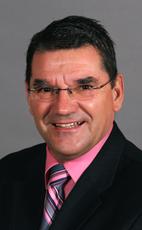Mr. Speaker, on June 7, the government tabled in the House of Commons a bill to provide for the security of marine transportation, further to the security measures for cruise ships and ports prepared by the International Maritime Organization.
Although the implementation of such measures was not compulsory, in 1993, the previous government ratified the IMO Convention and Protocol, following the drafting of an international convention and protocol on unlawful threats to marine transportation.
Such action had become necessary as a result of acts of terrorism that occurred in the mid-eighties. Hon. members will recall what happened to the Achille Lauro and the City of Porros in the Mediterranean.
This bill provides for a number of positive measures. First of all, it confers powers similar to those that apply to air and rail transportation; it reinforces the security of passengers and the marine transportation industry; and it gives the minister the authority to call for stricter security measures when circumstances warrant.
Better security will above all help to keep the industry competitive with other countries that have taken similar measures. That is the strong point of this bill. As you know, we must make sure we remain competitive. Today, the United States has full authority over marine transportation security, and this year, it will implement IMO measures for cruise ships.
We all know that the United States has the authority to issue advisories indicating that foreign ports are dangerous. It has very active inspection program abroad. Since 85 per cent of cruise ship passengers are U.S. citizens, we must ensure that these tourists are treated according to the same standards in Canada as they are in the United States. The Port of Vancouver, for instance, has an interest in developing its tourist industry as does the Port of Quebec City, which receives increasing numbers of foreign tourists.
We cannot run the risk of losing money in an industry that is worth $500 million today. An interesting point is that this legislation will cover ships, ports and marine facilities in Canada and ships registered in Canada anywhere else in the world.
Perhaps this would be a good time to urge Canadian shipowners to register their ships in Canada and to fly the Canadian flag. Above all, the Government of Canada which owns Marine Atlantic, among other things, must be called to order and it must display its pride by flying the Canadian flag and hiring Canadian
sailors. This would mean work for many sailors and would help us to ease the tax burden of our citizens.
It is interesting to note that the scope of Bill C-38 extends to drilling facilities and platforms.
Several provisions in this bill give the government the authority to develop measures respecting the security of maritime transportation. The enactment also provides, when the regulations are contravened, for large fines and imprisonment in the case of an individual and for hefty fines in the case of a corporation.
It should be noted that the cost to the industry of implementing these provisions is acceptable. Vessels and ports which already comply with IMO measures will incur no costs in respect of this enactment, while those not already in compliance with these measures will incur costs of roughly $150,000. The cost to the government of implementing security and inspection measures and of enforcing the regulations will also be negligible since inspection resources currently handling transportation security will be reassigned.
While I did say that the costs involved were acceptable to the industry, I would like to temper my remarks somewhat. Pursuant to the new rules, this bill will be referred to a committee and I hope that my colleague and chairman of the transport committee, the hon. member for Hamilton West, will have the presence of mind to invite representatives of the industry to appear so that they can reassure us that this bill poses no major inconveniences or does not impede the development of ports in Quebec or in Canada as far as the cruise ship industry is concerned. Therefore, when I say that the costs involved are acceptable, I mean they are, subject to review by the parties concerned.
If the legislation passes, as I hope it will, the government will first have to ensure that the regulations provided for in the bill are drafted as soon as possible, taking care to duly consult with the industry and government departments. Many have already voiced their support for this bill and want to participate in the drafting of the regulations to ensure that they are consistent with the high standards of their members.
Second, it is important that the government move to have the legislation take effect as soon as possible. Failure to do so could result in the following problems: a lack of appropriate regulatory authority, a vulnerable transportation system and adverse effects on competition.
For this reason, our party supports the fast-track approach and agrees with the spirit of the bill.
In conclusion, as I mentioned, the official opposition supports the bill, on condition that regulations are adopted after the interested parties have been consulted and that the legislation and regulations take effect as soon as possible.

